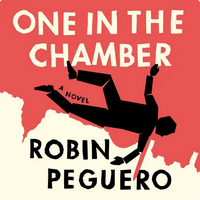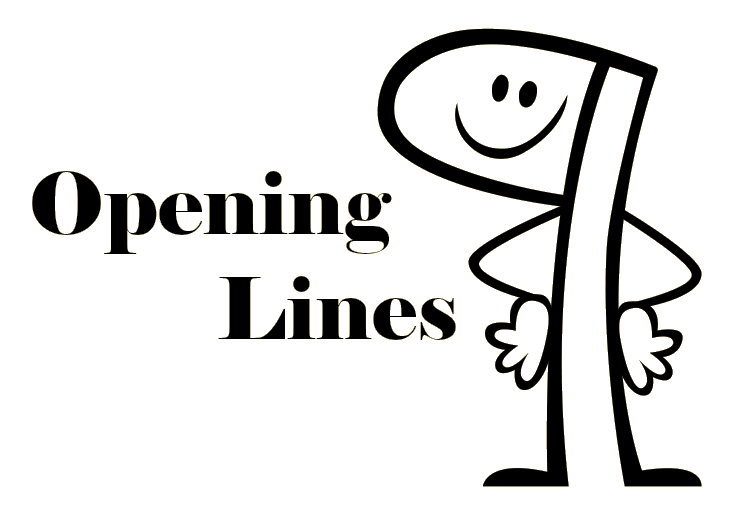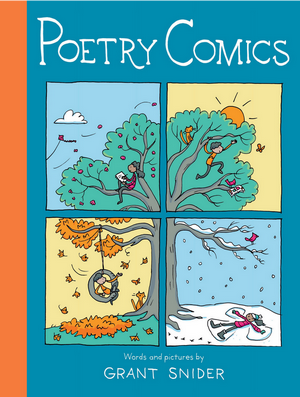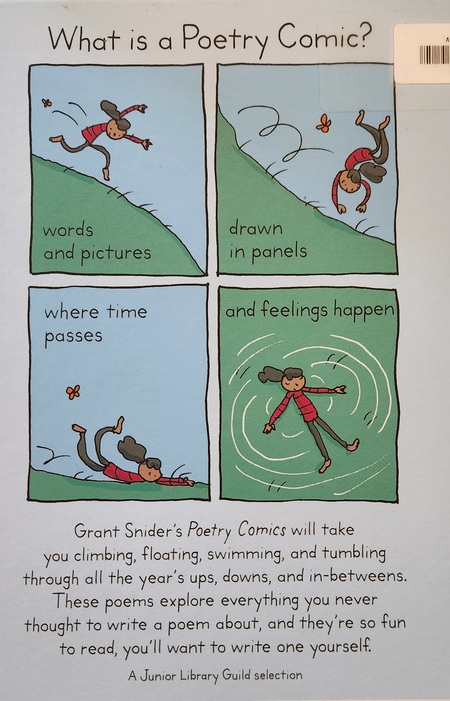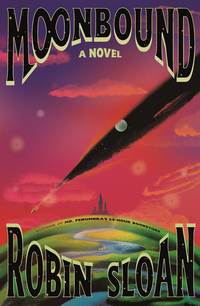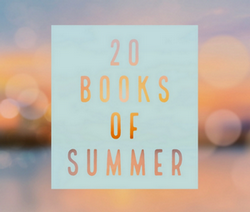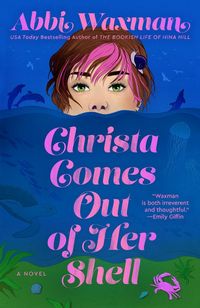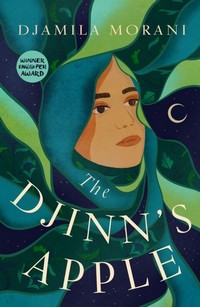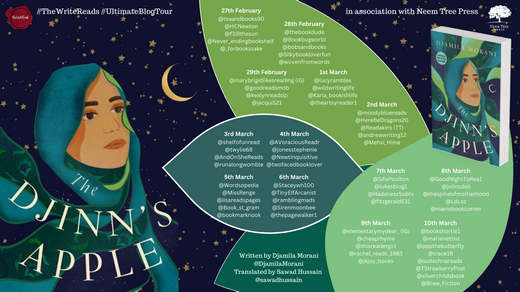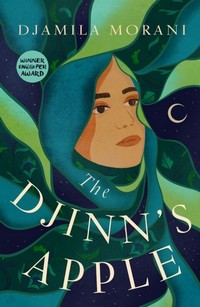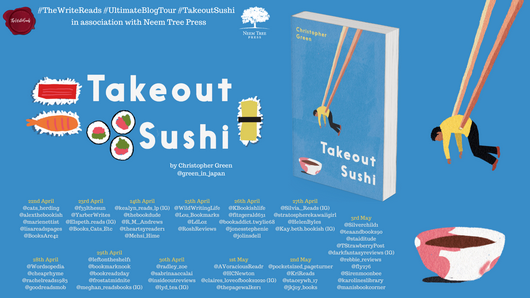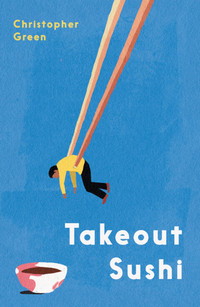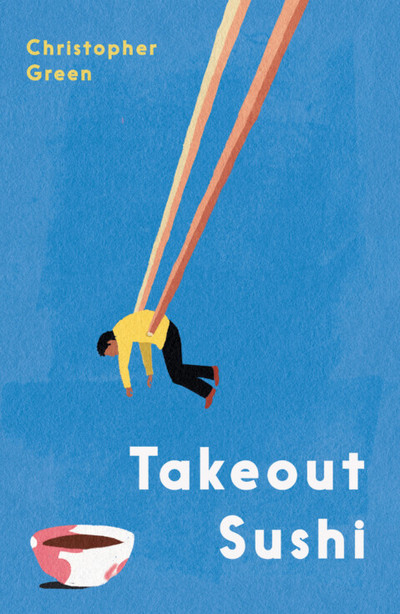by Abbi Waxman
DETAILS:
Publisher: Berkley Books
Publication Date: April 16, 2024
Format: Paperback
Length: 371 pg.
Read Date: May 2-7, 2024


I glanced up from the phone screen and caught sight of myself in the mirror. With thoughts of my mother in my head, I straightened up and took a look. As always, I was wearing pieces from what she refers to as my “forest floor collection.” It makes my life easier to wear khaki, green, olive or sand, because all of my clothes end up coated with seawater, salt lines and general beach muck. I researched and found the perfect pair of shorts, I researched and found the softest, most durable T-shirt, then bought four sets of both and never wear much else. Honestly, when Einstein did it, he was an eccentric genius; when Steve Jobs did it, he was a genius emulating an eccentric; and when I do it, I’m not making enough of an effort. Patriarchal bullshit; those are quality shorts.
What’s Christa Comes Out of Her Shell About?
Christa Barnet is a biology researcher happily studying a particular kind of snail on a remote island in the Indian Ocean. The island is populated by people who grew up there and a rotation of other researchers taking advantage of the isolation of the flora and fauna from the rest of the world. She has no real close relationships, a nice room in a boarding house, and her snails—life is pretty much what Christa wants.
Until her father comes back from the dead. Well, kind of. It’s not a zombie novel or anything. Her dad was an internationally known TV host of nature programs. Think Steve Irvin without the accent. But when Christa was a small girl, the plane her dad was flying went down in the Alaskan wilderness and no one knew what happened to him. He was eventually declared dead, and the family moved on.
But now, he’s back—so Christa has to leave her snails behind and go back to help her mother and sisters deal with this, to find out what her dad has been doing (and why no one knew he was alive).
To get all reductionistic there are three main plotlines afoot and I want to touch on them briefly—but each of them is about Christa coming out of her shell in their essence.
The Whole Dad Thing / Celebrity Culture
So, yeah…her Dad is back. It’s hard to talk about this as anything but strange. And Christa and her family don’t even bother trying. As they learn more and more about where he’s been, it gets even stranger.
Obviously, all of them have a lot to catch up on, they’ve missed decades of life with him—Christa has only the vaguest memories of him because she was so young when he disappeared. Her sisters have relationships to repair and rebuild (to say nothing of what her mother needs to do)—but Christa essentially needs to start from nothing.
Given his status (which has only grown while he was “dead”), the way that the media is sensationalizing his return, and the way the American public loves a good reboot—the press and opportunities for books, movies, new series, etc., etc., etc. are insane. It’s difficult to try to reestablish/establish any kind of family ties under the microscopes and spotlights that surround the family right now—and that’s assuming the family wants to.
Agents representing entertainment professionals live lives illuminated by reflection. When their clients do well, they do well, and some cycles are virtuous and some are vicious. One fortunate feather in an agency’s cap is a celebrity who DWF—died while famous. All famous people die, but most do not die famous. Most simply die old, like everyone else.
When they do kick off at their peak, their agency inherits an icon. It’s an annuity, kind of, or like money in a mattress. Somebody benefits from the fact that Jimi Hendrix (for example) isn’t a happily retired guitar player growing tomatoes in Seattle, though that would have been a better outcome in every other way.
Throughout all of this, Waxman has her sights set on the entertainment industry (with a special eye on publicists/PR/focus on image over substance), the role of the press in covering that industry, and social media (in general and relating to celebrities). Waxman reminds me so much of Christopher Buckley (oddly, Dave Barry’s fiction comes to mind, too) when this plotline is the focus—she has a similar ability to find the alienness to what “regular people” think, the absurdity of the “logic” employed by the media types, and the ridiculousness of how it all works—and is eaten up by viewers/fans. She excoriates this whole thing—but also shows the appeal.
The Romance Story
He frowned quizzically at me. “You’re very dreamy for a scientist. I think of you guys as practical and all about the facts, ma’am.”
I laughed. “You’re completely wrong. Scientists fall deeply in love with something and spend their lives obsessing over it.” I turned my head to look at him. “Like when you first fall in love with someone, and want nothing more than to be with them all the time, learn everything you can, discover how they feel, what they think . . . that’s science. Isn’t love just an overwhelming desire to solve the mystery of another human being?” I shrugged. “Science is full of mysteries, and people trying to get to the bottom of them.”
Nate has been a constant feature in Christa’s life (and vice versa), he’s older than her—more like her sister’s age. But their families were close while they grew up—so they spent a lot of time in each other’s orbit. He’s now running the business side of her family’s conservation work, and they really haven’t set eyes on each other for over a decade.
When they do meet each other in this novel, the mutual attraction is pretty obvious (especially to everyone who isn’t them). What unfolds from there is one of your standard-issue Rom-Com stories. But Waxman is so good at writing it that it feels pretty fresh, and you can easily find yourself forgetting that you’ve read umpteen times and seen even more stories that follow the same outline. Also, it needs to be remembered why we’ve seen/read this story so many times—it works really well and people enjoy it. People really enjoy it when someone as clever as Waxman is telling it.
The two are sweet and cute together. The story is easily the most engaging part of the book—and it’s nice to have it to fall back on when things get dicey with the above story.
Christa’s Mother and Sisters
“What’s with your hair?” she said, reaching out to tousle it, a move I was able to block.
I shrugged. “I like it like this; it makes it easier for people to find me.” It also goes with the tattoos and piercings to suggest I might be a badass. . . It’s a basic tenet of camouflage: Look like something dangerous (an edgy chick who might mess you up) and no one will get close enough to see the truth (a nervous scientist who would rather be left in peace).
I think readers are supposed to get more invested in the story about Nate—and the story about her Dad is really the bigger story of the novel. But the plotline that did the most for me was about Christa’s family that didn’t go missing—her mother and older sisters.
Like with many such stories, there’s a mix of who these people are as adults and who they were as children/teens (and younger adults, in the case of her mother). Christa, more than the others, still sees the others the way she saw them as a child and during her turbulent teen years. Yes, she understands how they’re not the same people, but her view of them as people and their relationships with her were set in stone then. And for her sisters, they largely see the troubled teen she was.
In the last couple of years, however, Christa’s sisters have started to change—and they all get to see new sides of their mother given the return of her not-that-deceased-first husband. They all see Christa in new ways, too—and we get the idea they actually understand her better than she does herself.
If you’ve read Waxman before, you know how well she depicts relationships between women. If you haven’t—just take my word for it, she depicts them in a way that you could just sit and read dozens and dozens of pages of it, even without much of a plot. When they’re working together on something (even if they don’t all agree on the way to do it), it’s just great. If Waxman just wants to give us a novella about the next Thanksgiving these women enjoy together (or something like that), I’ll be first in line.
I have largely complimentary things to say about the novel as a whole, but this aspect is the one I’ll spend the most time thinking about.
We Could’ve Faded to Black a Little Quicker
Like with the Sunshine Vicram series, at a certain point I couldn’t believe I recommended this book to my mother.* I’m sure she’ll enjoy it, but things get a little more spicy (and detailed) before Waxman fades to back on our couple. And Christa’s first-person narration is fine with talking about things that happen while things were faded to black.
* Note to Self: Finish Books before recommending them to her.
I don’t think we actually achieve the, um, levels of ardor that Sunshine does (not like that’s the most extreme I’ve encountered, I just think I’ve talked more about what the people that make up TV/Movie warnings call “adult situations” with that series than others). But we get close on a couple of occasions.
Is it too “adult” for most actual adults to read? No. Will many of you find it tame? Yes. Did it make me a little uncomfortable? Yes (I keep telling you I’m a prude). Does it really impact what I think of the novel? Nope. But it was noteworthy enough, that I figured I should mention it.
If only I feel better about things when my mother ends up reading the novel.
So, what did I think about Christa Comes Out of Her Shell?
According to my notes, the first 87 pages of this book might have been my favorite 87 pages this year. Maybe it went on longer, but that’s where I was when I wrote that down. Not every page after those were as good, but overall, I had a real blast with this book.
Christa is definitely a Waxman-brand protagonist. But she’s different enough to make it clear that Waxman has range. Christa is more abrasive—she also has more formal education than the others I’ve encountered and shows it (not in a performative or braggadocio way). There’s also a Bernadette Fox-ish vibe to her. The rest of the characters are easily the kind to shop at Nina Hill’s bookstore or hang out at the boardinghouse with Laura Costello and the rest. In other words, they’re complicated, fallible, and fun to spend time with.
Waxman’s voice is one of my favorites—and has been since I first encountered her work. I love her characters, her wit, and the stories she decides to tell. This seemed like a departure for her—not in ways I can articulate, nor in ways I can or want to criticize. It’s just a different feel from her last three novels—and more power to her for making those choices.
I laughed, I was moved, my heart was warmed—all the typical reactions to Abbi Waxman. I loved being in this world, surrounded by Waxman’s words and I cannot wait for the next excuse I have to do it again. I heartily encourage you all to do the same.

This post contains an affiliate link. If you purchase from it, I will get a small commission at no additional cost to you. As always, the opinions expressed are my own.


